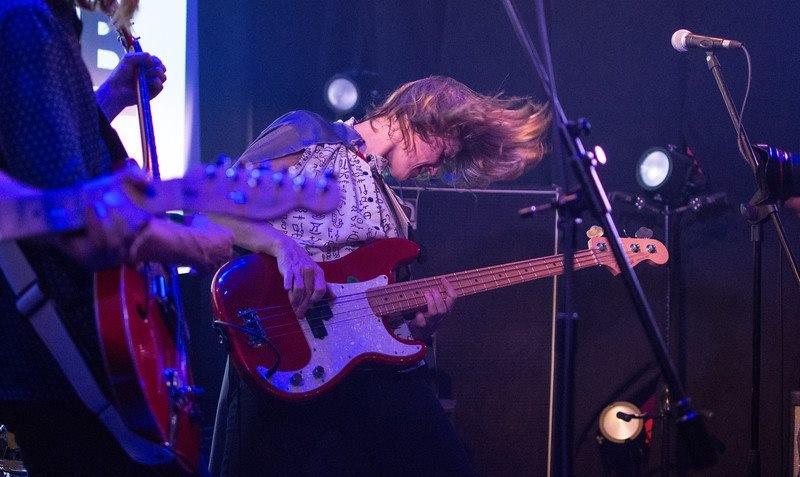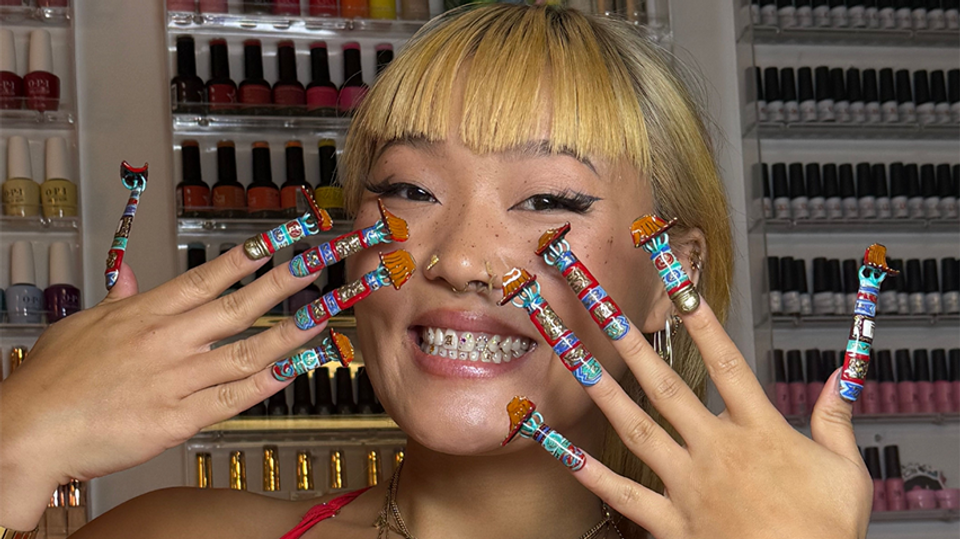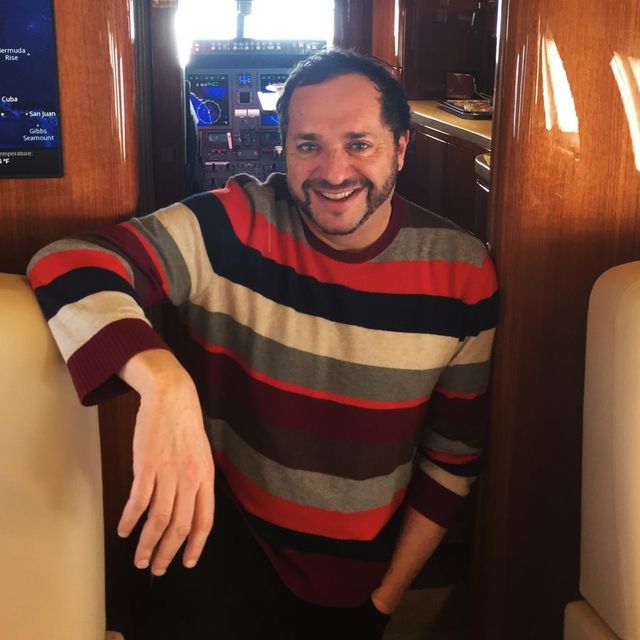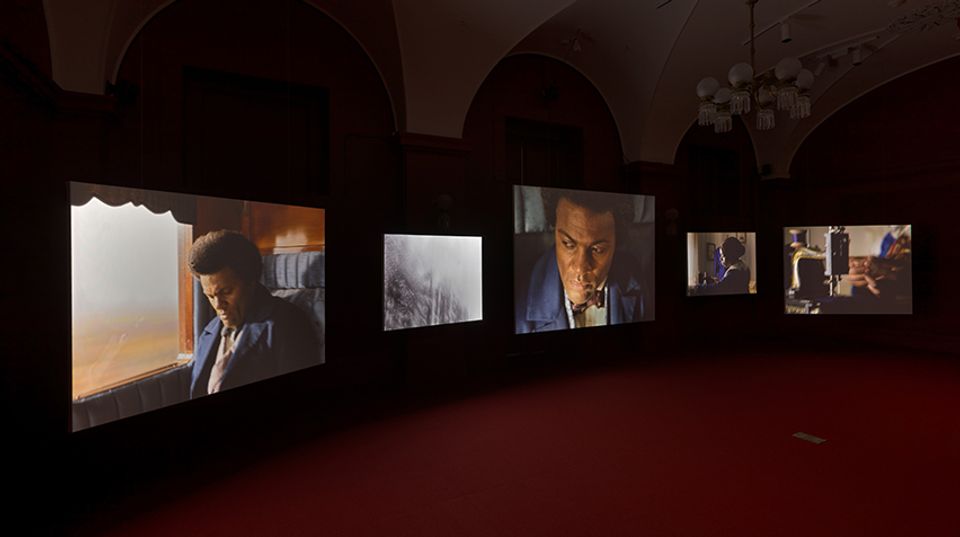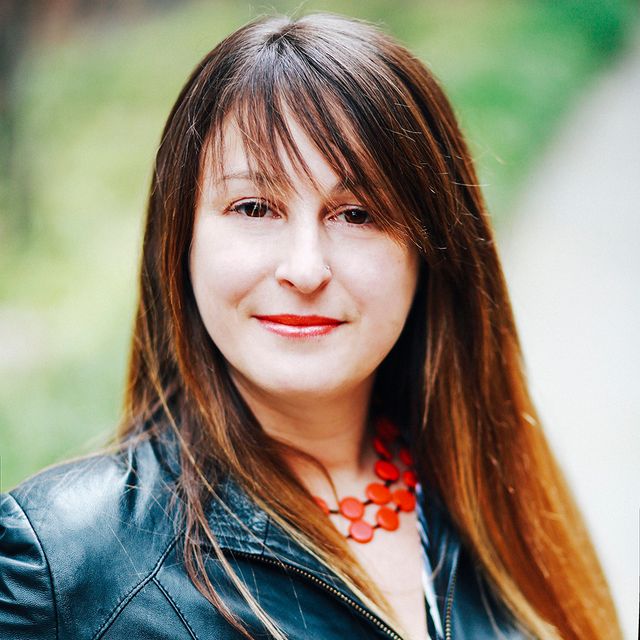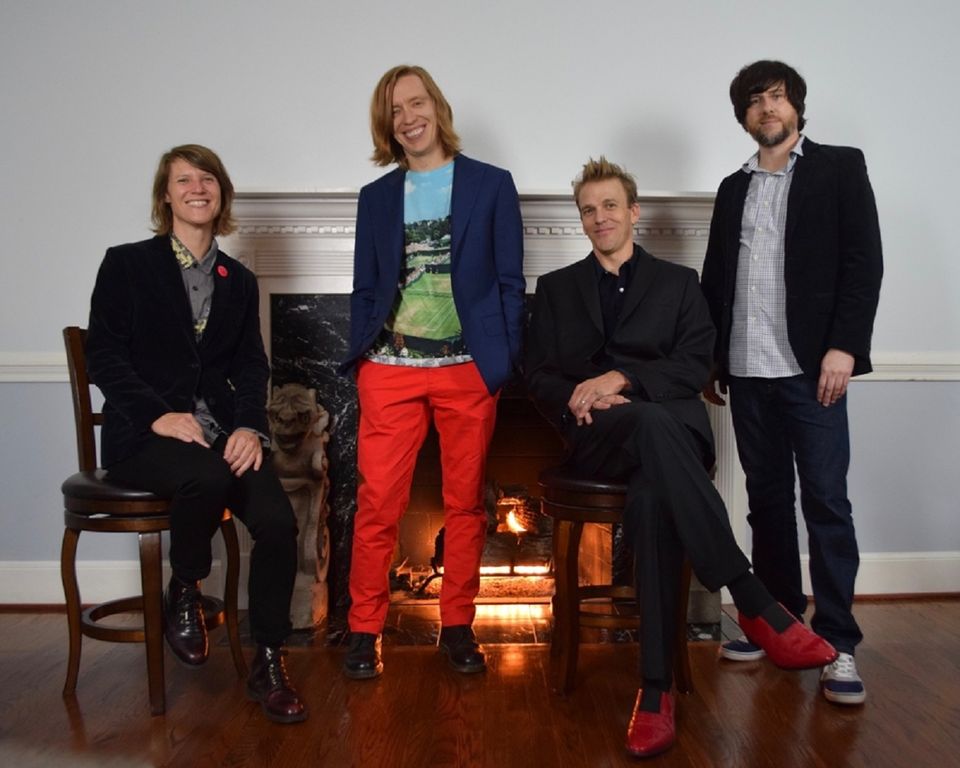
WSC press shot, 2018.
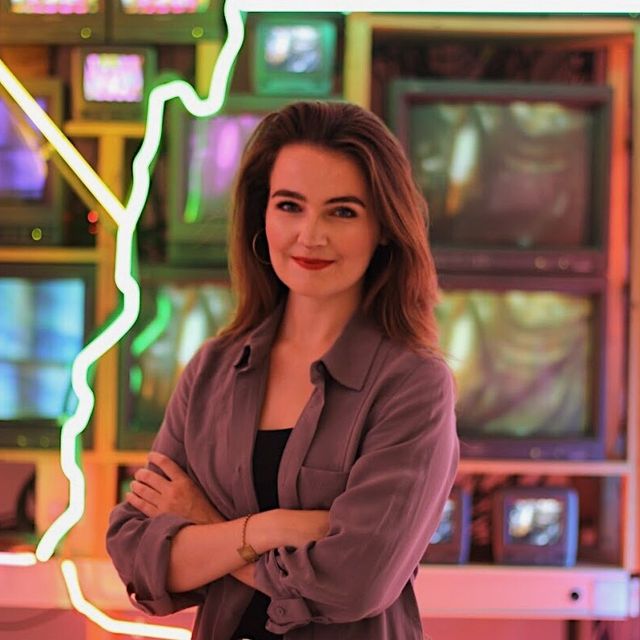
On Thursday, December 5th, from 5:30 to 7 p.m., the Luce Foundation Center hosts another installment of Luce Unplugged. Thursday shows, presented with Hometown Sounds, are a tribute to a Luce Center artwork selected by the performer. Jessica McFadden, the Luce Foundation Center's Program Specialist, reached out to December’s headliner, Washington Social Club, to see what they’ve been up to since their 2018 reunion.
After a decade-long “nap,” how does it feel to be back and creating new music? And what, if anything, has changed within your group?
Ha! Yes, we are the Ichabod Crane of DC indie rock. We set an alarm in 2009, not sure what happened. In all seriousness though, each of us comes back to Washington Social Club having grown as a musician. So making music together again, it’s both familiar and something new—familiar to be playing with these people who you know like family, and new because we’re all bringing new perspectives and ideas to the music.
I think in many ways we feel like the same kids we’ve always been. We love this band, probably more than ever, and that renewed love makes us more understanding and more open to new ideas.
Olivia, you’re previously quoted saying: "In the early aughts, DC's image as a town for working suits gave us our raison d'etre… We wanted to prove that this city could be a home to working weirdos who do art and music. 17 years after our first show at the Grog and Tankard, Washington seems to be proving that for itself, with more music venues, art spaces and organizations supporting local artists than I remember in my lifetime.”
What’s your experience in the DC music community been like? How has it changed over the years?
My experience in the DC music community has been blessedly positive. I’ve been saying this since 2001 and it’s remained true year after year—DC musicians support each other by working collaboratively rather than competitively. Should a rainstorm or holiday weekend limit attendance at a given performance, you can bet that all the musicians in the building will be in the front row, cheering each act on the bill. Some venues have come and gone, and some remain stalwarts of the scene, especially Black Cat, DC Nine, Velvet Lounge, and Galaxy Hut in Arlington. One change I’ve noticed is a decline in house show culture which was once a foundation of DC music. I imagine this relates to the Venn diagram of increase in housing costs, gentrification, and the flight of musicians to Baltimore and the DC suburbs, but these days I seem to hear more about house show venues closing down than I hear about shows being put on. If I’m mistaken, I want to hear about it, so please invite me to your house show!
Are there any spaces or organizations today that do a particularly great job supporting local artists?
I’m happy to report that there are many! Listen Local First is an organization dedicated to raising the profile of working musicians living in the District by facilitating meetings between musicians and local government, hosting panel discussions, and producing high-profile local music events like the Kingman Island Bluegrass Festival and the Funk Parade. A newer organization called ProjectHera aims to provide opportunities for women in DC music to connect with each other and raise their visibility. ProjectHera hosts an annual music festival in addition to networking events and open mic nights. Justin Trawick’s “The Nine” is a long-running series that brings together nine local musicians for each performance to showcase a few of each of their songs and to collaborate on the fly. Also, a shout out to Community Foodworks, which runs several neighborhood farmers’ markets and features local performers at each one.
In what ways would you like to see change in DC moving forward?
Affordable housing is the single biggest challenge in DC today. Musicians and other creatives often have to choose between making art and making rent. We’re losing bright, inventive people to more affordable places like Baltimore - our loss, their gain. While solving the affordable housing crisis may be above our proverbial pay grades, I’d like to see more musicians get involved politically to encourage the DC government to expand grant programs for artists; partner with private industry to create more economic opportunity for artists and musicians; and to allocate dedicated space in which artists and musicians can both create and showcase their work.
Can you talk a little bit about your creative process? From start to finish, how to you make music?
Making music in this band is a lot like sculpture. We start with a broad idea, maybe that comes from a lyric, or a riff, or a jam that we’ve played, or an instrumental that one of us has on their own. Once we have that first piece, we start shaping it, which is more about removing the bits that don’t work, editing it down until it all feels essential. We’ll end up with a full instrumental version, then Martin will usually start shaping the lyrics, editing the lyrical structure. Then it goes to Olivia and Evan to add their vocals, and Randy will usually work closely with our producer to make sure the recorded sound is where we want it to be.
The piece that we chose [for the Object Talk before the performance on Thursday]—Horse—reminds me of a great song. I love economy and simplicity. Our new song Dance This Out is about 2 minutes long. I think if you’re doing it right you can bring a whole universe to two minutes.
Can you give us any details about upcoming projects you’re working on and excited about?
We just released a new EP called “They’re Talking to Me Strange” which we are thrilled with. The next thing will be to record another group of songs and release a full album, hopefully in 2020.
Check out Washington Social Club’s newly released EP on Spotify. Luce Unplugged is a free, monthly concert series held in the Luce Foundation Center for American Art at Smithsonian American Art Museum. The series is organized in partnership with Hometown Sounds, and Washington City Paper.
Be sure to check out our upcoming performances and don't miss Washington Social Club’s performance on Thursday, December 5th! Snacks and libations available for purchase at on-site bar. No registration required. Object talk at 5:30 p.m., Washington Social Club at 6 p.m.














